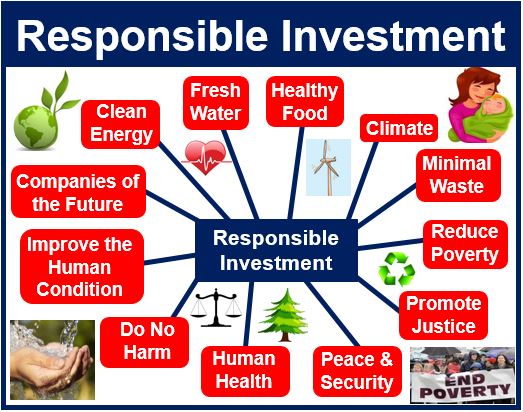What is responsible investment?
Responsible investment is an investment in which a person seeks both a financial return and sustainable value, i.e. it should not only be a good business move, but also one that either helps the environment, corporate governance, or other ethical issues (ESG = environmental, social and governance).
Responsible investment is also known as triple-bottom-line investing, green investing, sustainable investing, ethical investing and socially responsible investing (SRI). They all have one thing in common – long-term value creation.
In this context, value refers to other things apart from economic value, such as justice, fairness, and environmental sustainability.
 Responsible investments focus on the long term.
Responsible investments focus on the long term.
According to PRI (Principles of Responsible Investment), which is co-funded by the European Commission:
“Responsible investment is an approach to investment that explicitly acknowledges the relevance to the investor of environmental, social and governance factors, and of the long-term health and stability of the market as a whole.”
“It recognizes that the generation of long-term sustainable returns is dependent on stable, well-functioning and well governed social, environmental and economic systems.”
Responsible investment versus traditional investment
Responsible investment differs from conventional approaches in two main ways:
The Timeframe: the aim is for long-term investment returns that are sustainable, rather than short-term returns.
Focus on Values: the investor pays attention to wider contextual factors, such as environmental systems, people’s health, stability, and the evolving values and expectations of society, of which they (the investments) are part.
According to some studies, businesses which bring sustainability into the core of their strategy tend to outperform their counterparts over the long term, both in terms of accounting and stock market performance.
Video – Implementing an ESG agenda
Adam Kirkman, Head of ESG at AMP Capital, talks about his experiences and approaches when implementing an ESG (environmental, social and governance) agenda.

